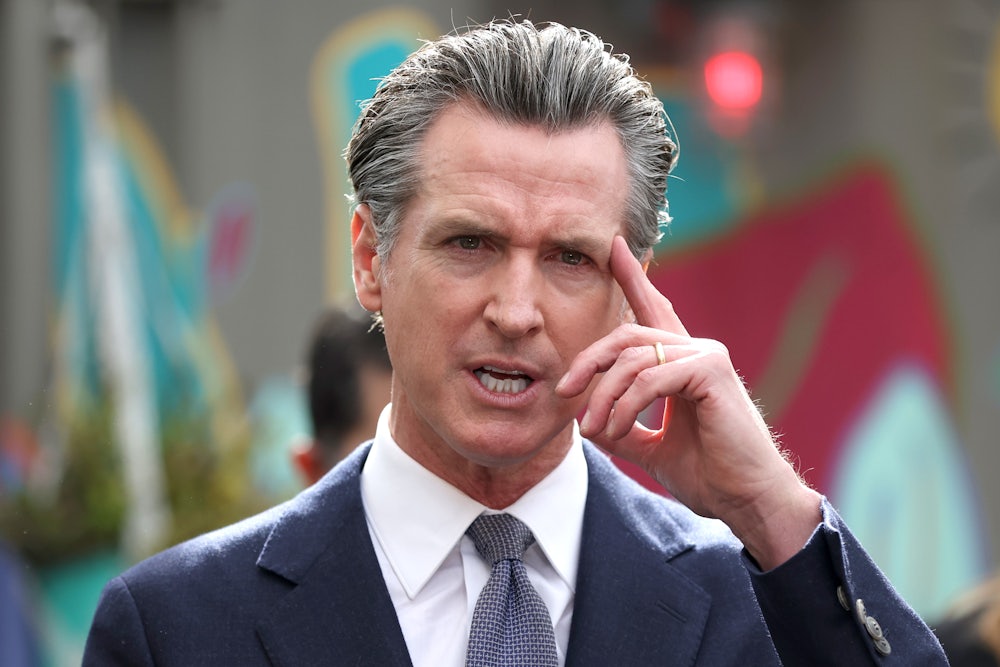Two weeks ago, Assembly Bill 1400, a bill that would have cleared a pathway for single-payer, Medicare for All–style health care for the good people of California in the form of “CalCare,” suffered an ignominious death. Its lead sponsor, Assemblymember Ash Kalra of San Jose, elected not to even bring the bill to a vote. “It became clear that we did not have the votes necessary for passage, and I decided the best course of action is to not put A.B. 1400 for a vote today,” he said.
This is California we’re talking about—possibly the most progressive state in the nation, at least west of Vermont. Democrats hold a supermajority in the House. The California Democratic Party platform explicitly claims to support “single-payer” health care. It’s a state where 95 percent of the public believes that “making sure all Californians have access to health insurance coverage” is important. And yet Democrats couldn’t pass single-payer health care.
That’s because it wasn’t about health care or the taxes to pay for it at all. It was about the remarkable power corporations continue to wield over elected Democrats.
In response to CalCare’s failure, the California Nurses Association, longtime supporters of single-payer health care, noted Kalra’s unwillingness to expose his colleagues—that he chose to “cover for those who would have been forced to go on the record about where they stand on guaranteed health care for all people in California.” And that’s exactly it. CalCare was murdered like Caesar: betrayed by its ostensible allies, all of whom participated so that none of them could be fully blamed.
Why the betrayal? Because the bill was a nonstarter for California’s most powerful business groups. The California Chamber of Commerce led a coalition of 122 business groups in opposition to the bill. Opposition was the most vehement from the groups representing Big Health Care, including the California Association of Health Plans, the California Hospital Association, the California Medical Association, and the California Agents and Health Insurance Professionals. And these are the groups from whom too many Democrats take donations … and political orders.
Assembly Speaker Anthony Rendon, who shelved a previous version of the bill in 2017, said after the failure of A.B. 1400: “I’m deeply disappointed that the author did not bring this bill up for a vote today. I support single-payer and fully intended to vote ‘yes’ on this bill.” You might think that the Assembly speaker would have put more muscle into whipping votes from something he “supports” and “intended to vote ‘yes’” on, rather than piling on a junior member of his caucus after the fact.
Indeed, over the course of his career, Rendon’s campaigns have taken gobs of money from the very same corporations and lobby groups opposing A.B. 1400. Let’s follow the money: Rendon has taken $50,700 from the California Medical Association; $33,300 and $32,000 from UnitedHealth Group and Blue Cross Blue Shield of California, respectively; and $25,900 from the California Association of Hospitals and Health Systems.
The betrayal goes further. Governor Gavin Newsom campaigned in 2018 on single-payer health care: “I’m tired of politicians saying they support single-payer but that it’s too soon, too expensive, or someone else’s problem.” But he failed to utter a single word in support of A.B. 1400. When he was asked about it, Newsom said, “I have not had the opportunity to review that plan, and no one has presented it to me.” You mean to tell me that you’re the governor of the country’s biggest state, and you don’t have time to review a bill that would massively transform health care in a direction you claim to support? In an interview with The Mercury News, Kalra noted that “it hurts when you’re trying to garner votes for a policy that the governor is brushing aside despite a prior commitment to it.”
Indeed, Newsom’s own Healthy California for All commission to study universal health care estimated that Californians would pay $522 billion on health care in 2022. The U.C. Berkeley labor center estimates that A.B. 1400 would have cost only $222 billion a year, saving Californians nearly 60 percent on health care. Even more conservative legislative estimates put the savings at 25 percent, with most of those savings accruing to low-income people in the state. That’s because A.B. 1400 is progressively funded, raising revenue through excise and payroll taxes on businesses and raising personal income taxes on salaries higher than $149,509 a year.
For Newsom’s part, his most recent campaign for governor took $130,400 from UnitedHealth Group, $120,300 from the California Medical Association, and $98,800 from Blue Cross Blue Shield of California.
As the story of the demise of single-payer health care in California is written, much ink will be spilled over fears of tax increases or a “one-size-fits-all” program run like the Department of Motor Vehicles. These are, after all, the talking points the opponents of single-payer have promulgated. Less attention will have been paid to the way that Democrats’ addiction to corporate funding weds them to do industry’s bidding—to betray their own party platform to oppose a policy that would guarantee them health care while saving them billions.








